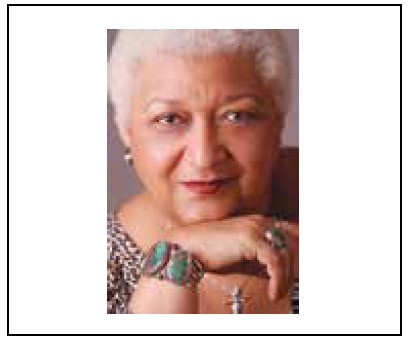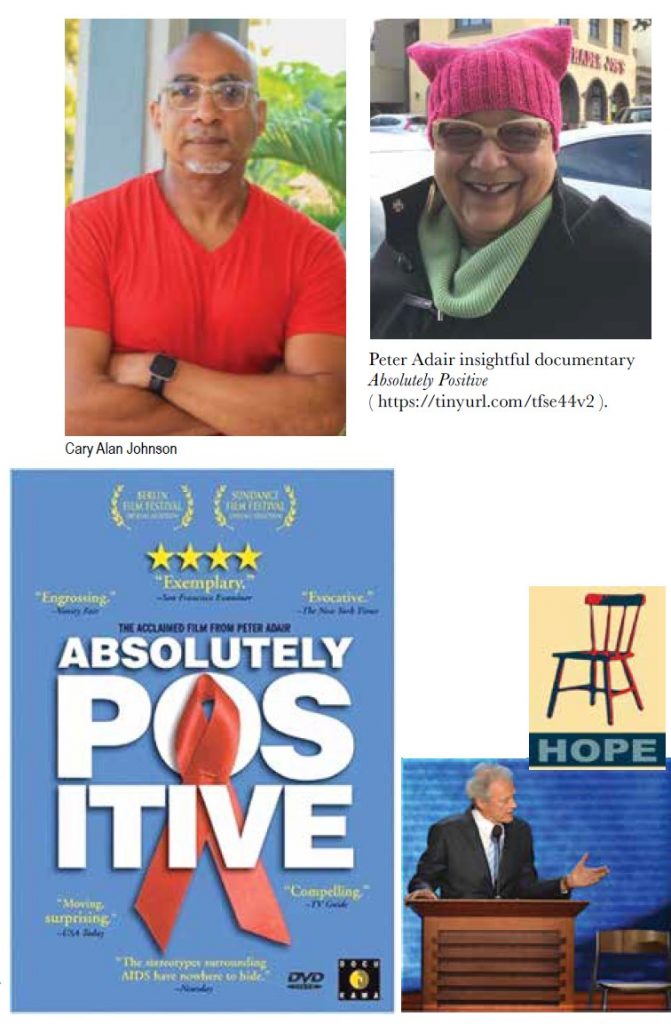
By Jewelle Gomez–
A friend recently commented that she’d seen my photograph and was surprised to notice that my hair was all white. She was no more surprised than I am when I walk by a mirror. As a Lesbian of color and a Baby Boomer, I felt that age sure snuck up on me! I no longer couch surf, hitchhike, or chain myself to fences in protest, but I am still a committed activist, and I’ve got the pink pussyhat to prove it. My white hair reminds me I’ve lived through more than one pandemic.
When I was a pre-teen, it was polio. It left mostly kids and some adults struggling for breath or locked into the tonnage of leg braces. Desperate announcements warned us to avoid super spreaders at places like public swimming pools. I escaped contact with the highly contagious poliomyelitis that attacks the spinal cord and can cause such paralysis that even lung muscles can’t move—hence the iron lung machine.

The U.S., through its vigorous vaccination campaign and closure of public pools, managed to eliminate polio. There have been no new cases here since 1979. Other countries with less money have not been as lucky. Since the 1950s, I have never stepped into a swimming pool without those warnings echoing in the back of my brain.
In the 1980s, the next pandemic was, of course, HIV/AIDS, which has claimed more than 36 million lives. I’m thinking about that pandemic a lot because I’m reading an excellent book by Cary Alan Johnson, whom I met back when we were both young writers.
Cary’s book, Desire Lines, will be published by Querelle Press in the spring of 2022. ( https://querellepress.com/ ) It evokes that moment in the 1980s when many lesbians and gay men of color were learning—through writing, dancing, and activism—how to make community with each other. If you never had the chance to go to Manhattan’s Paradise Garage and bathe in the sweat of queer people undulating rhythmically to the sound of Whitney or Sylvester, you’ll get the mesmerizing sensation when you read this novel.
It also digs deep into the terror of the AIDS pandemic; we looked for its signs everywhere, watching helplessly as friends and relatives were felled. My young cousin, an exquisite choir queen back home in Boston, spent a couple thousand dollars with online psychics looking for hope. He’s gone now.
When I’m writing, I remember the generation of young, male writers, my friends who are now gone. Or the lovely, Black Oakland wife who told her story of living with HIV/AIDS in the Peter Adair insightful documentary Absolutely Positive ( https://tinyurl.com/tfse44v2 ).
I met her at the film’s release party in 1991, and wrote a poem about how white guests couldn’t tell us apart. She too is now gone, as is Peter. Today many others have survived and, with insanely expensive medications, live full lives. Yet the PTSD remains for my generation.
Those affected by these rampant viruses took them seriously. People across the country, gay and not, male and not, took to the streets shaming the U.S. government and medical establishment into finding means to stop the carnage. By the way, a version of the iron lung came in handy during this pandemic, too.
Today, too many “know nothings” are talking as if they know something. I have some relatives like that: whining about personal rights with no clue about personal responsibility.
Remember when Clint Eastwood talked to an empty chair during the 2012 Republican National Convention? Right now, the U.S. embodies that moment: a desiccated, old white guy (who used to be a symbol of righting wrongs) talking to dead air. But this is where my white hair is a comfort. I’ve got endurance on my side; I can keep working to make the righting of wrongs a way of life for more of us.
Jewelle Gomez is a lesbian/feminist activist, novelist, poet, and playwright. She’s written for “The Advocate,” “Ms. Magazine,” “Black Scholar,” “The San Francisco Chronicle,” “The New York Times,” and “The Village Voice.” Follow her on Instagram and Twitter @VampyreVamp
Published on September 23, 2021
Recent Comments